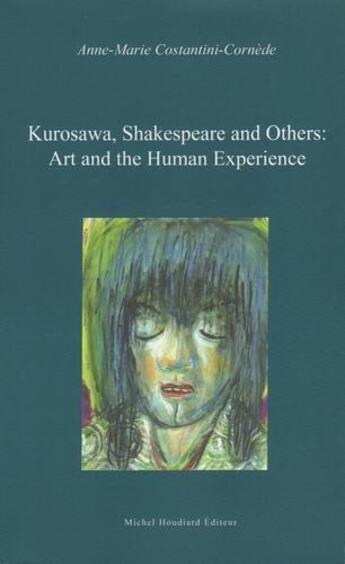-
Nombre de pages : (-)
-
Collection :
(-)
-
Genre :
Sociologie
-
Thème :
Sociologie
-
Prix littéraire(s) :
(-)
Résumé:
This book means to show that Kurosawa's humanism draws on a sense of individual experience resting upon specific family and social backgrounds as well as the observations of the surrounding social, political and cultural contexts. Kurosawa has often been libelled as a humanist and a citizen of... Voir plus
This book means to show that Kurosawa's humanism draws on a sense of individual experience resting upon specific family and social backgrounds as well as the observations of the surrounding social, political and cultural contexts. Kurosawa has often been libelled as a humanist and a citizen of the world, but he also constantly asserted that he was a typical Japanese man of his time. Born in 1910, at the end of the Taisho era, he made his thirty films in the Showa period, during a long twentieth-century that saw Japan tossed by major social, economic and political changes, definitely entering modernity and asserting itself as one of the greatest nations in the world. Kurosawa is indeed both an innovative 'auteur', often praised for his spectacular aesthetics, and a modern man eager to watch his fellow countrymen and earthmen live and struggle in mutable worlds. His art reveals an unrelenting commitment to the quest for human truth and beautiful artistic achievement. It stems from the dialectics between individual and social experience, equally nurtured by the personal experience moulding his intimate self and the facts and events experimented by his social self in the various contexts he wished to depict or satirise. This book thus refers to the director's memories, impressions and personal beliefs, but also tries to widen perspectives, amply referring to the Japanese historical, cultural and mythological backgrounds as the epiphenomena bound to predetermine the creative process. The wish to understand man's actions or tragic mistakes also explains the director's drive to rewrite the major literary works of Gorky, Dostoevsky or Shakespeare. A crisscrossing trajectory leads us to analyse Japanese cultural patterns as well as Renaissance contexts better to highlight man's prime movers, strengths and flaws. Beyond cultural specificities and obvious differences, the book ultimately aims to highlight the essential prevalence of 'trans-ethics' or the evidential, common human patterns Kurosawa was inevitably drawn to represent in his films.
Donner votre avis














